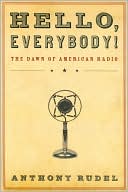Category Books
- Fiction Books & Literature
- Graphic Novels
- Horror
- Mystery & Crime
- Poetry
- Romance Books
- Science Fiction & Fantasy
- Thrillers
- Westerns
- Ages 0-2
- Ages 3-5
- Ages 6-8
- Ages 9-12
- Teens
- Children's Books
- African Americans
- Antiques & Collectibles
- Art, Architecture & Photography
- Bibles & Bible Studies
- Biography
- Business Books
- Christianity
- Computer Books & Technology Books
- Cookbooks, Food & Wine
- Crafts & Hobbies Books
- Education & Teaching
- Engineering
- Entertainment
- Foreign Languages
- Game Books
- Gay & Lesbian
- Health Books, Diet & Fitness Books
- History
- Home & Garden
- Humor Books
- Judaism & Judaica
- Law
- Medical Books
- New Age & Spirituality
- Nonfiction
- Parenting & Family
- Pets
- Philosophy
- Political Books & Current Events Books
- Psychology & Psychotherapy
- Reference
- Religion Books
- Science & Nature
- Self Improvement
- Sex & Relationships
- Social Sciences
- Sports & Adventure
- Study Guides & Test Prep
- Travel
- True Crime
- Weddings
- Women's Studies
Hello, Everybody!: The Dawn of American Radio »

Authors: Anthony Rudel
ISBN-13: 9780151012756, ISBN-10: 015101275X
Format: Hardcover
Publisher: Houghton Mifflin Harcourt
Date Published: October 2008
Edition: (Non-applicable)
Author Biography: Anthony Rudel
ANTHONY RUDEL has spent his professional life in radio, including ten years on the air, as well as stints as vice president of programming for WQXR in New York and SW Radio Networks. The author of the novel Imagining Don Giovanni and two books on classical music, he now consults for radio stations across the country and lives in Chappaqua, New York.
Book Synopsis
Long before the internet, another young technology was transformed—with help from a colorful collection of eccentrics and visionaries—into a mass medium with the power to connect millions of people.
When amateur enthusiasts began sending fuzzy signals from their garages and rooftops, radio broadcasting was born. Sensing the medium's potential, snake-oil salesmen and preachers took to the air, at once setting early standards for radio programming and making bedlam of the airwaves. Into the chaos stepped a young secretary of commerce, Herbert Hoover, whose passion for organization guided the technology's growth. When a charismatic bandleader named Rudy Vallee created the first on-air variety show and America elected its first true radio president, Franklin Delano Roosevelt, radio had arrived.
With clarity, humor, and an eye for outsized characters forgotten by polite history, Anthony Rudel tells the story of the boisterous years when radio took its place in the nation's living room and forever changed American politics, journalism, and entertainment.
The Barnes & Noble Review
"The wireless music box has no imaginable commercial value," declared a not particularly prescient executive of the newly formed RCA in 1920. "Who would pay for a message sent to nobody in particular?" As Anthony Rudel explains, the fact that radio waves scattered about was considered a disadvantage to early developers; they hoped to use the technology to send signals directly from one point to another. Rudel's lively history of the dawn of the radio age covers a parade of innovators and hucksters (see Dr. John Brinkley, the broadcasting pioneer who advertised his surgical technique, transplanting goat testicles into men to cure impotence, over the air) who grasped that the ability to reach many people at once was in fact radio's greatest strength. During the 1920s, radio's popularity exploded as sports events, variety shows, and religious sermons became programming staples -- the latter made national celebrities out of controversial evangelists Aimee Semple McPherson and Father Charles Coughlin. On-the-spot coverage of the Scopes trial and the Lindbergh kidnapping revolutionized the way Americans received their news (thus alarming the newspaper industry, one of several fascinating parallels to the dawn of the Internet age), while weather updates and market reports changed the way farmers did business. One of the figures credited with guiding the growth of radio was Herbert Hoover, who, as commerce secretary under Presidents Harding and Coolidge, helped determine how active the government should be in regulating the airwaves. Ironically, radio contributed to his resounding defeat in the 1932 presidential election at the hands of an opponent, FDR, who was a master of the medium. --Barbara Spindel
Table of Contents
Subjects
 Telecommunications
Telecommunications  Radio Stations & Broadcasting
Radio Stations & BroadcastingEntertainment
 Radio
Radio  Radio Stations & Broadcasting
Radio Stations & BroadcastingNonfiction
 Entertainment
Entertainment  Radio
Radio
